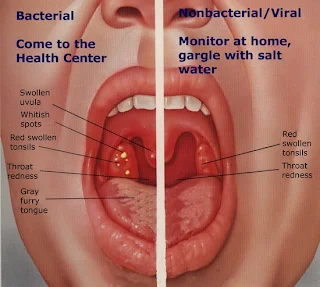Understanding Tonsillitis Symptoms: What You Need to Know
Understanding Tonsillitis Symptoms: What You Need to Know
Introduction
Tonsillitis is a common condition that can affect individuals of all ages. It occurs when the tonsils, which are located at the back of the throat, become inflamed or infected. Recognizing the symptoms of tonsillitis is crucial for timely diagnosis and treatment. In this article, we will explore the various signs and symptoms of tonsillitis, shedding light on what you should be aware of.
The Basics of Tonsillitis
What are Tonsils?
Tonsils are small, gland-like structures found at the back of the throat. They play a vital role in the immune system, helping to filter out harmful bacteria and viruses.
Causes of Tonsillitis
Tonsillitis is primarily caused by viral or bacterial infections. The most common culprits include the Epstein-Barr virus, Streptococcus bacteria, and the influenza virus.
Identifying Tonsillitis Symptoms
1. Sore Throat
One of the hallmark symptoms of tonsillitis is a persistent and painful sore throat. This discomfort may make it difficult to swallow.
2. Difficulty Swallowing
As the tonsils become inflamed, swallowing can become a painful and challenging task.
3. Red or Swollen Tonsils
During a bout of tonsillitis, the tonsils may appear larger than usual and can range from a deep red to a light pink color.
4. White or Yellow Patches
In some cases, individuals with tonsillitis may notice white or yellow spots or patches on the tonsils.
5. Fever and Chills
An infection associated with tonsillitis can lead to an elevation in body temperature, resulting in fever and chills.
6. Ear Pain
Due to the proximity of the tonsils to the ears, it's not uncommon for individuals with tonsillitis to experience ear pain.
7. Headache
A persistent headache can accompany tonsillitis, often as a result of the body's response to the infection.
8. Bad Breath
Tonsillitis can lead to unpleasant breath, which is caused by the presence of bacteria in the mouth and throat.
9. Fatigue
The body's immune response to tonsillitis can lead to feelings of fatigue and general malaise.
Seeking Medical Attention
If you suspect you or a loved one has tonsillitis, it is crucial to consult a healthcare professional promptly. They will be able to provide a thorough examination and recommend an appropriate course of action.
Treatment Options
The treatment for tonsillitis depends on the underlying cause. Viral infections often require rest, hydration, and symptom management. Bacterial infections may necessitate the use of antibiotics.
Conclusion
Understanding the symptoms of tonsillitis is essential for prompt diagnosis and treatment. By recognizing the signs early on, individuals can seek the necessary medical attention and take steps towards a swift recovery.
Frequently Asked Questions
1. Can tonsillitis be prevented?
While it's not always possible to prevent tonsillitis, maintaining good hygiene practices and avoiding close contact with individuals who are infected can help reduce the risk.
2. Are tonsillitis symptoms the same in children and adults?
The symptoms of tonsillitis are generally similar in both children and adults. However, children may be more prone to experiencing recurrent episodes.
3. Is surgery necessary for tonsillitis?
In severe or recurrent cases of tonsillitis, a healthcare professional may recommend a tonsillectomy, which is the surgical removal of the tonsils.
4. How long does it take to recover from tonsillitis?
The recovery time for tonsillitis can vary depending on the individual and the severity of the condition. Generally, it takes about one to two weeks to fully recover.
5. Can tonsillitis lead to complications?
In rare cases, untreated or recurrent tonsillitis can lead to complications such as abscess formation or the spread of infection to other areas of the body. It's important to seek medical attention promptly.





0 comments:
Post a Comment